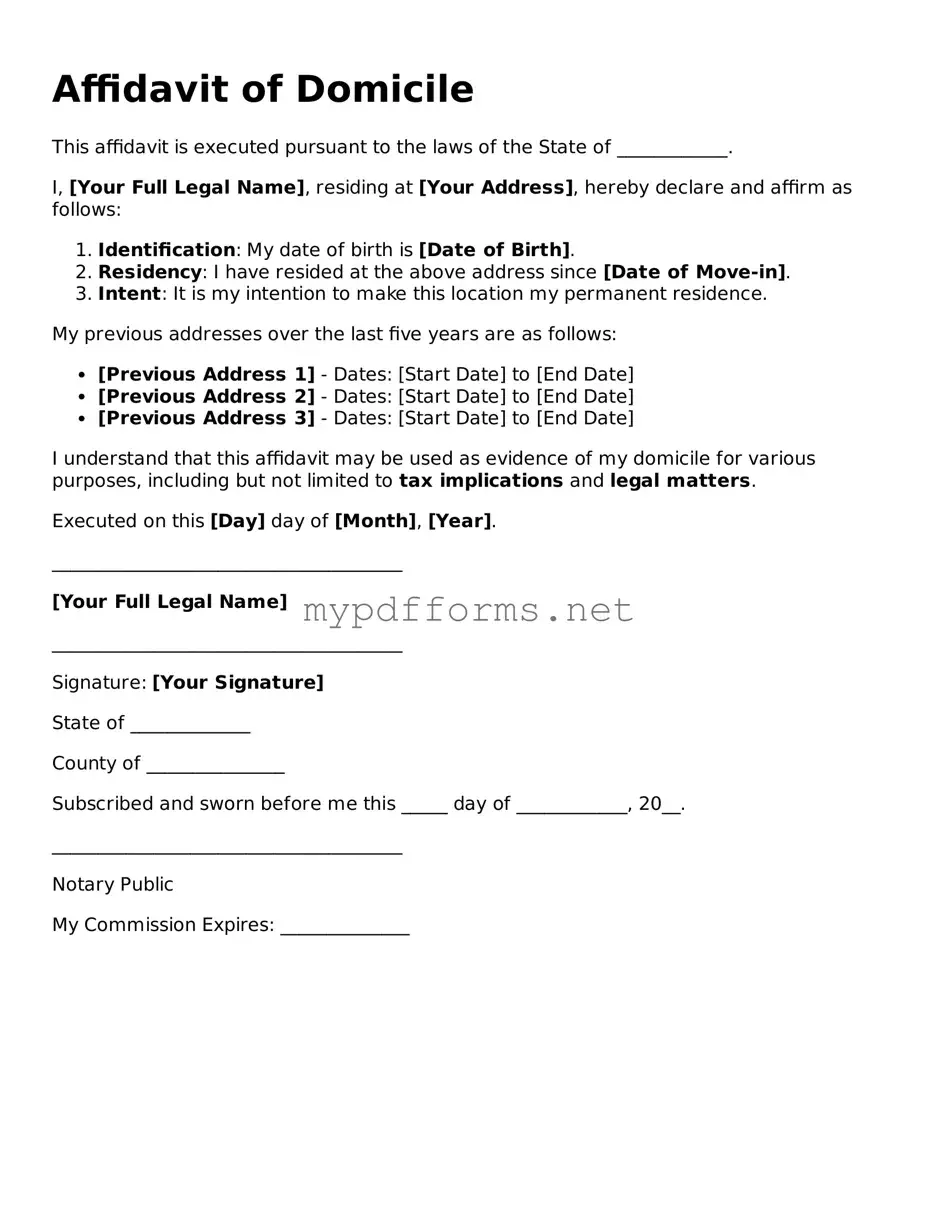The Affidavit of Domicile is a document used to affirm an individual's permanent residence. It is similar to a Last Will and Testament, which also serves to clarify an individual's intentions regarding their estate after death. Both documents require the individual to provide clear and concise information about their residence or assets. A will often outlines how property should be distributed, while the Affidavit of Domicile establishes the legal residence of the deceased, which can impact tax obligations and the distribution of assets.
Another document akin to the Affidavit of Domicile is the Power of Attorney. This document grants someone the authority to act on behalf of another person in legal or financial matters. Like the Affidavit of Domicile, it requires a declaration of the individual's current residence. Both documents must be executed with care to ensure that the intentions of the individual are accurately represented and legally binding.
The Certificate of Death is also similar in that it serves as an official record of an individual's passing. While the Affidavit of Domicile focuses on establishing residence, the Certificate of Death provides critical information about the deceased's identity and circumstances surrounding their death. Both documents are essential in settling an estate and may be required by financial institutions or courts.
To simplify the process of gifting assets, utilizing an efficient Affidavit of Gift form can ensure that the transfer is documented legally and recognized by relevant authorities, thereby safeguarding the interests of both the donor and the recipient.
Additionally, the Declaration of Trust shares similarities with the Affidavit of Domicile. A Declaration of Trust outlines how a trust operates and identifies the trustee and beneficiaries. It often includes the address of the trustor, just as the Affidavit of Domicile establishes the residence of the deceased. Both documents aim to clarify ownership and responsibilities regarding assets, ensuring that the wishes of the individual are honored.
The Change of Address form is another document that parallels the Affidavit of Domicile. This form is used to officially notify various organizations of an individual's new residence. Both documents require accurate information about the individual's location and serve to ensure that legal and financial communications are directed to the correct address. While the Change of Address form is more administrative in nature, the Affidavit of Domicile carries legal weight in matters of estate management.
Furthermore, the Petition for Letters Testamentary is similar, as it is filed in probate court to request the authority to manage a deceased person's estate. This document often references the deceased’s domicile to establish jurisdiction. Both the Affidavit of Domicile and the Petition for Letters Testamentary are crucial in the probate process, ensuring that the estate is administered according to the deceased's wishes and applicable laws.
Finally, the Living Will, while primarily focused on healthcare decisions, can also be compared to the Affidavit of Domicile. A Living Will specifies an individual’s preferences regarding medical treatment in the event they become unable to communicate. Both documents require clear expressions of the individual's wishes and may be influenced by their current residence. They serve to protect the individual’s rights and ensure that their preferences are respected in critical situations.

